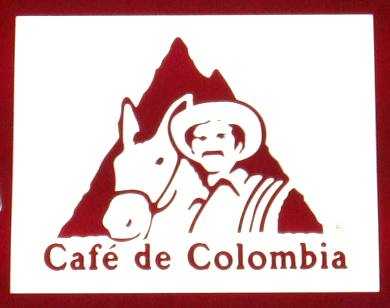BOGOTA, Colombia – As an institution seeking to ensure welfare of farmers, the Colombian Coffee Growers Federation (FNC) has a new tool that allows coffee growers complying with the Common Code for the Coffee Community (4C) sustainability standard to scale to UTZ Certified.
This is another important sustainability standard that encourages implementation of good agricultural practices in responsible production of coffee.
This possibility of scaling from one standard to another allows not only coffee growers to increase and consolidate benefits of sustainability, but for the Federation’s clients and partners interested in UTZ Certified coffee means that the Colombian coffee guild has the technical tools to implement UTZ projects on a large scale from its wide base of 4C farmers, always seeking to offer attractive commercial alternatives for new certified farmers.
Working together with clients and partners interested in investing in this 4C-UTZ scaling up and acquiring the resulting UTZ Certified coffee is another possibility created by this project.
Between 2012 and 2013, the Federation, along with the Tchibo German retail chain; the Sustainable Trade Initiative (IDH), based in the Netherlands; UTZ Certified and 4C, implemented the “Stepping up from 4C Compliance to UTZ Certification” pilot project in Colombia, which from the beginning resolved to analyze the way 4C coffee farms could scale to UTZ certification.
With an investment of 227,066 euros, the project was carried out in two phases:
Phase 1: Theoretical work: To analyze norms of both standards, find their correlation, identify additional practices to be implemented and create a guide that allows stepping up from the 4C standardto UTZ certification. With the generated tools, this phase allowed finding that 4C farms comply with 55% of UTZ requirements.
With the analysis document and guide that were created, both in English and Spanish, coffee growers and implementers can be guided so that a 4C farm scales up to UTZ standard.
Phase 2: Field work: 4C producersin the municipalities of Quinchía and Apía, in the Risaralda department, were trained and then implemented practices to obtain the UTZ certification.
The project’s main conclusions and learned lessons are:
- With the Federation’s leadership, it was possible to develop a tool that will allow coffee producers to analyze the most efficient way to progress in their continuous improvement processes and achieve the UTZ certification.
- As of results, there are enough evidences for the 4C Association to accept that UTZ Certified farms may be recognized as 4C farms.
- For a 4C farmto step up to UTZ, it is necessary to have economic resources that allow complying with additional requirements set by the UTZ certification code.
- From the technical point of view, the community has benefited, since they have implemented sustainable practices at their farms that will improve their quality of life and, in the future, productivity.
- It is important to analyze in a next phase how economic and production indicators of farms are affected by scaling from one standard to another. It is possible that there are productivity increases that allow encouraging farmers to enter a certification scheme.
As to productivity increases in the future, it is worth noting that with the UTZ certification, the producer improves infrastructure and management practices at the farm, what in the long term will have an impact on cost reduction and production.
For the Federation, a challenge ahead is also keep on analyzing commercial opportunities for certified coffee to match expectations of coffee growers as to premiums related to these specialty coffee programs.
Up to now, the Federation’s Commercial Office has hardly worked to increase supply of UTZ Certified Colombian coffee and find a market for it. And as new clients are interested in buying UTZ Certified coffee, the Federation will be able to supply it thanks to this innovative tool for stepping up from 4C to UTZ.
More related and complementary information on:
Source: FNC


















